January 15, 2010 Partial Solar
Eclipse Image Gallery
Images copyrighted to the imagers listed below and
Astronomical League of the Philippines.
I
|
Main Image |
Imager / Other Pics
(click on image link) |
Notes |

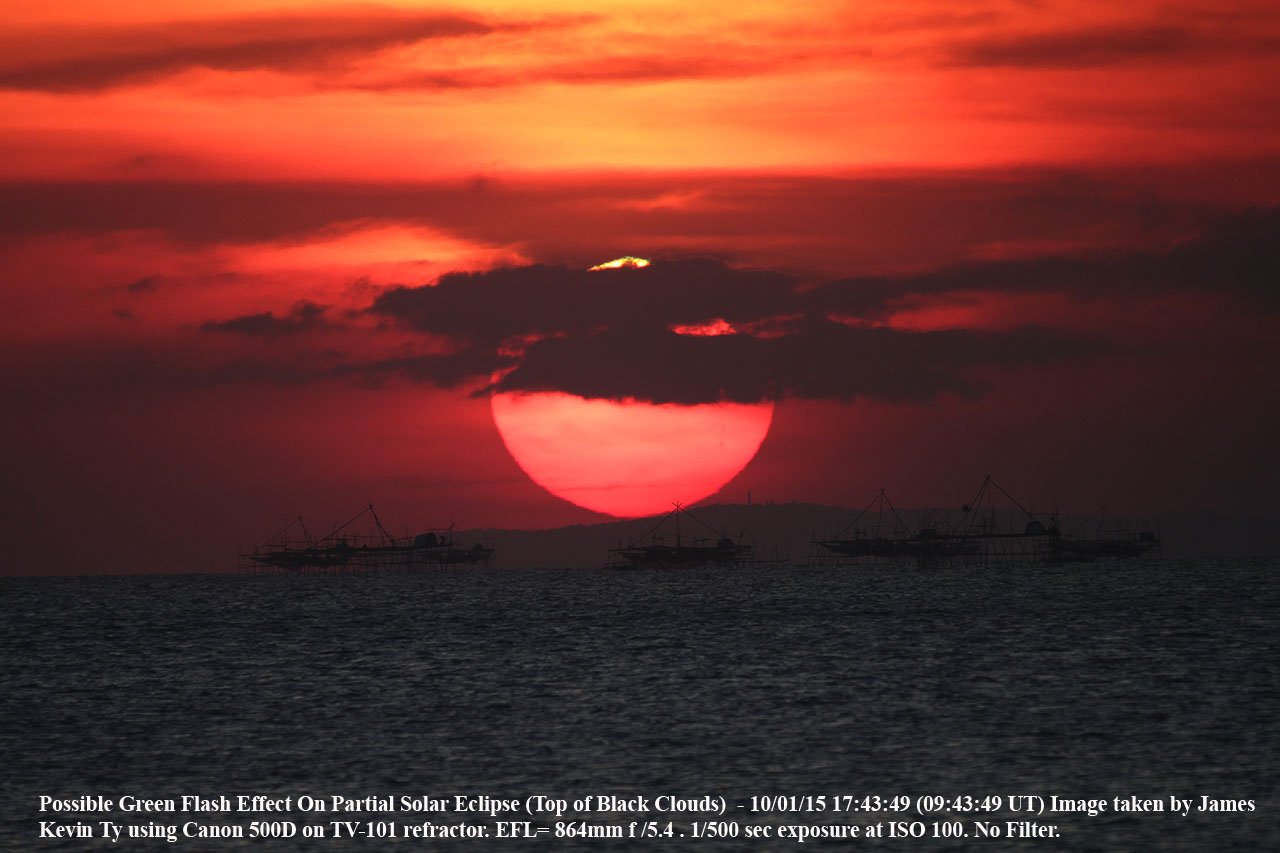 |
James Kevin Ty
Image
1 ,
2 ,
3 ,
4 ,
5 ,
6 |
Images taken using Canon 500D DSLR on
TV-101 refractor. Various exposures from
1/4000sec-1/500 sec exposure at ISO 100.
Baader 5.0 Filter was used on images 1-4 except for
the last 2 setting frames 5 & 6 which doesn't
require any filter.
Image 1 landed into the front page of
spaceweather.com . , the Moon passed in front of
the sun, producing a spectacular "ring
of fire" eclipse visible
from the Indian Ocean and surrounding lands. In
Manila, James Kevin Ty caught the eclipse in its
partial phase:
"The low-hanging sun was
dim and I didn't need any special filter to
photograph it using my
Canon 500D," says Ty. "In
the foreground, a young couple sat together in a
boat enjoying the romantic view." Indeed, it was a
lovely eclipse.
Image 5 shows a "possible
green flash effect" but atmospheric optics expert
Les Cowley suggested it is the 2nd variant of green
flash effect called "Cloud Top Flash." Les
commented: "This is possibly a 'cloud-top' flash.
There are two broad flash types, one is the
classical Jules Verne flash when the the last sliver
of sun disappears beneath the horizon. The other,
much harder to see visually but more often
photographed, is where the top of the sun flashes
green while
much of the disk is still above the horizon. The
cloud-top flash is a variant of the second type and
it might be caused by an inversion layer associated
with the cloud top. We do not fully understand
them!" Featured in
spaceweather.com
photo gallery |
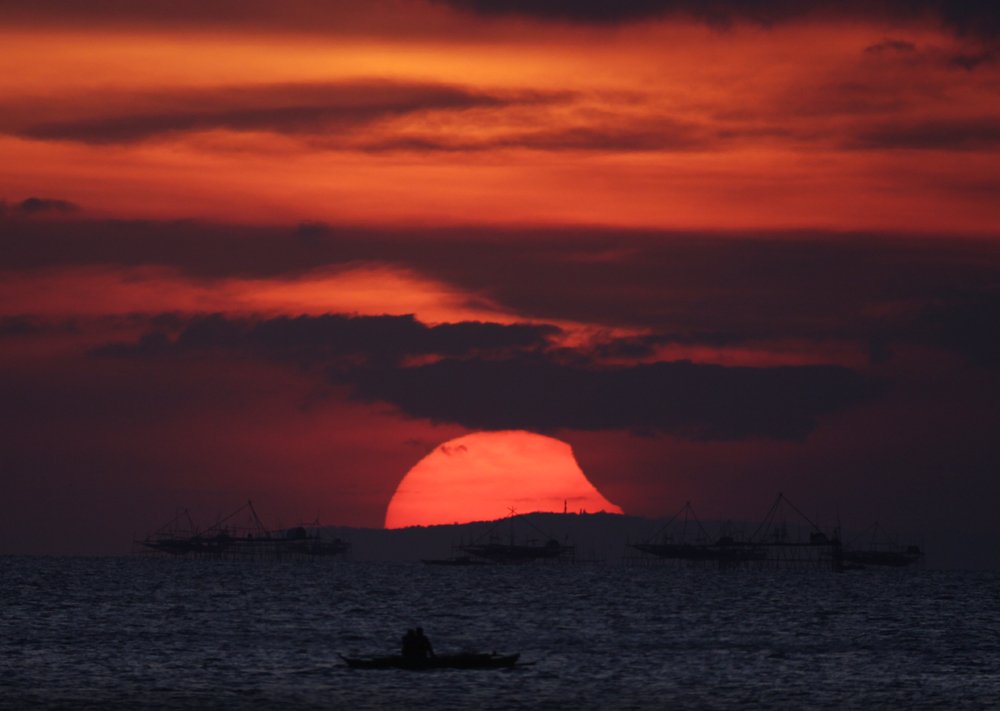 |
Jett Aguilar
Image 2 |
The January 15, 2010 sunset
partial solar eclipse at the Manila Bay is indeed a
rare and beautiful site. My image captured the
romantic blood red sunset with two lovers on a boat
silhouetted against the partially eclipsed sun. The
photo was taken around 5:44 pm (Philippine Standard
Time) using a
Canon 50D at prime focus
on an unfiltered Borg77ED refractor (1/800 sec at
ISO 200).
Featured in
spaceweather.com
photo gallery |
 |
Armando Lee , etc.
Image
1
,
2 ,
3
,
4 ,
5
, 6 |
Images taken using Canon 350D DSLR on WO Zenithstar
80ED refractor. |
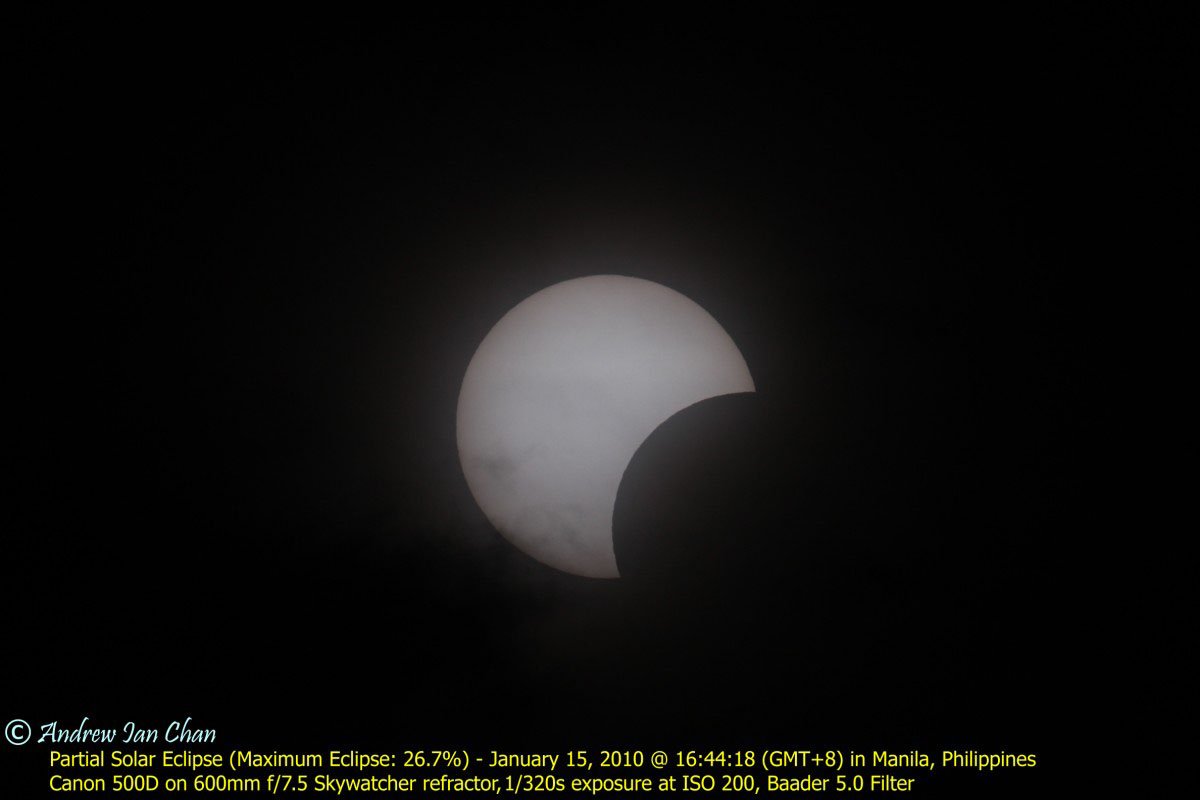 |
Andrew Ian Chan
Image
1 ,
2 ,
3 ,
4 ,
5 ,
6 ,
7 ,
8 ,
9 |
Image taken using
Canon 500D DSLR on Skywatcher 80ED refractor.
1 - 15.49.11 - first bite
2 - 16.08.13 - moon "touches" AR- 11040
sunspot group
3 - 16.44.18 - around maximum eclipse
4 - 17.19.15 - AR 11040 sunspot group re-emerges
(eclipsed for around 11min02sec)
5 - 17.34.42 - ghostly sun
6 - 17.42.46 - distorted solar eclipse
7 - 17.43.13 - "green
flash" (cloud-top flash)
8 - 17.44.38 - longest
annular solar eclipse of the
3rd
Millennium comes to an end.
+ one
food for thought photo... |
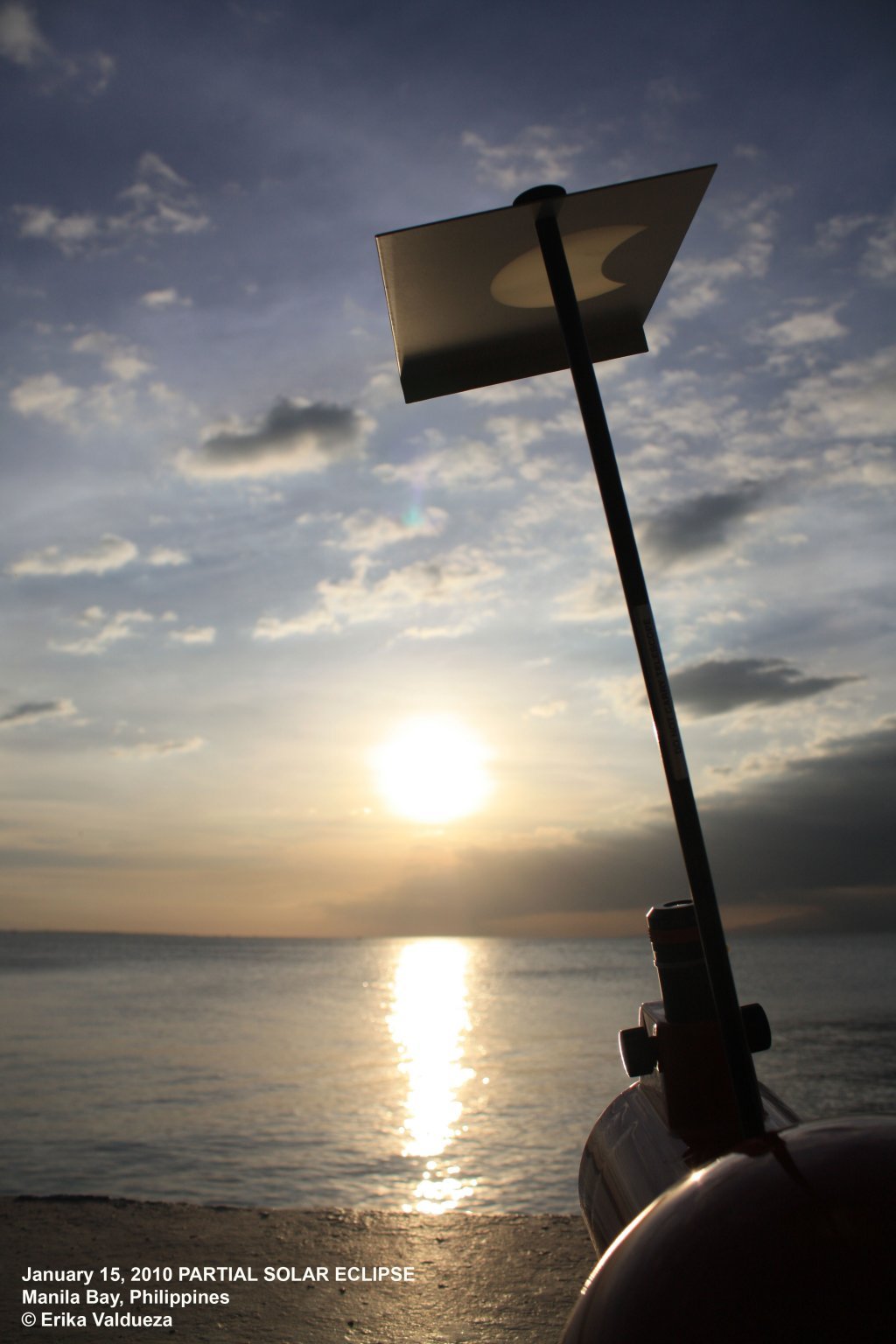 |
Erika Valdueza
Image 2 |
The Jan. 15, 2010
partial solar eclipse observed in Manila Bay,
Philippines was indeed a rare astronomical event -
the partially eclipsed sun during sunset was also
enveloped by a solar halo. I used my Astroscan
Reflector Telescope to project an image of the
eclipsed Sun. Images were taken using Canon Rebel
Xsi.
Featured in
spaceweather.com
photo gallery |
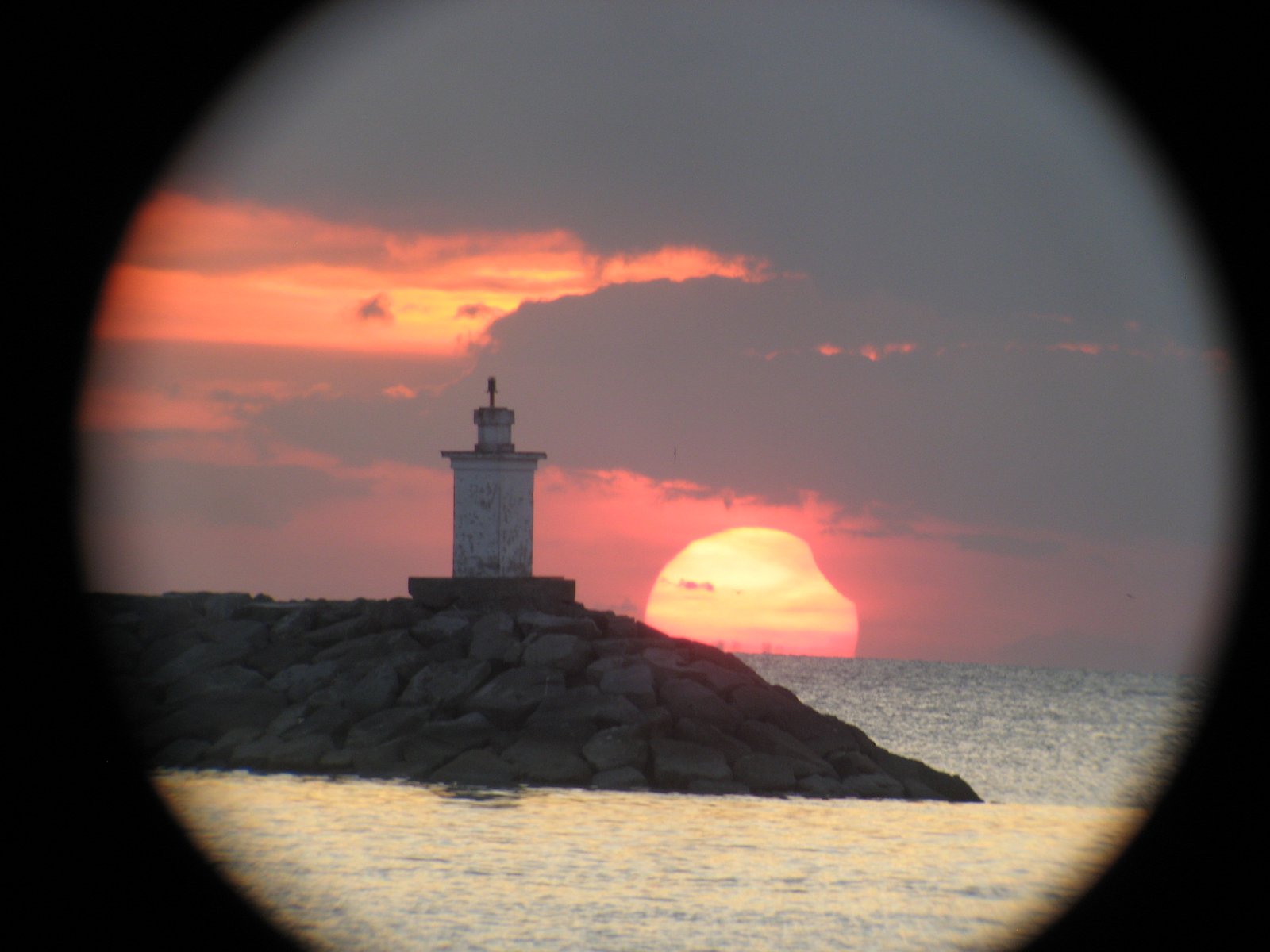 |
Frank Carlsen & Angie Tan |
Partial solar
eclipse taken at Manila bay, using Orion ShortTube
80mm telescope and PowerShot A710 - Afocal method.
January 15-2010. Not edited.
Featured in
spaceweather.com
photo gallery |
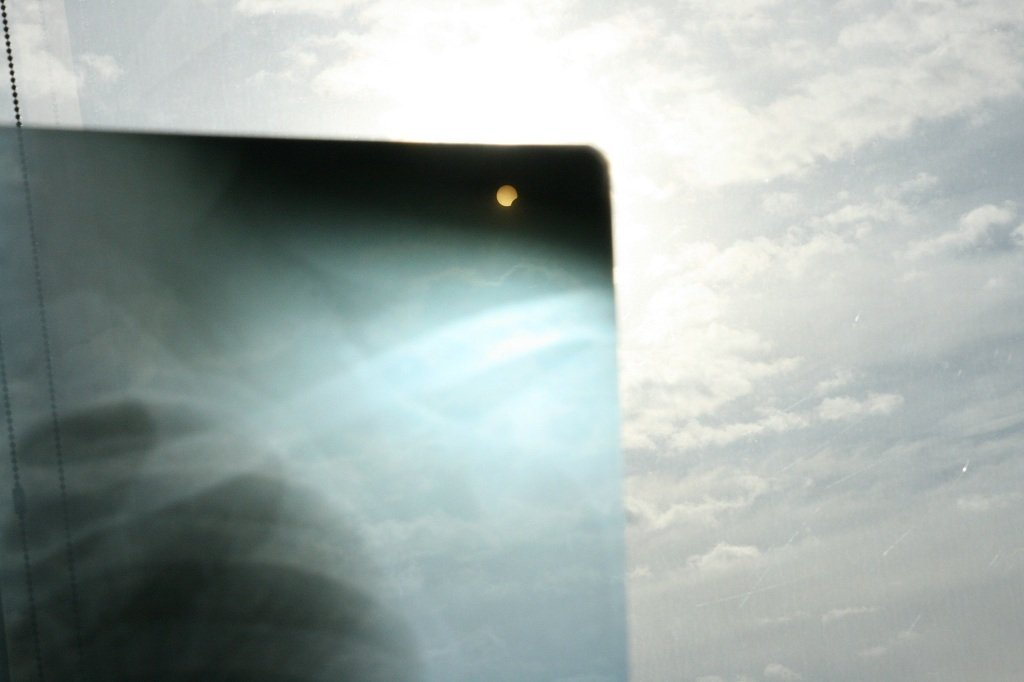 |
Raymund Sarmiento |
Took the annular
eclipse using a Canon DSLR camera with an X-ray
film. The side of the film provided the best
contrast for the shot.
Featured in
spaceweather.com
photo gallery |
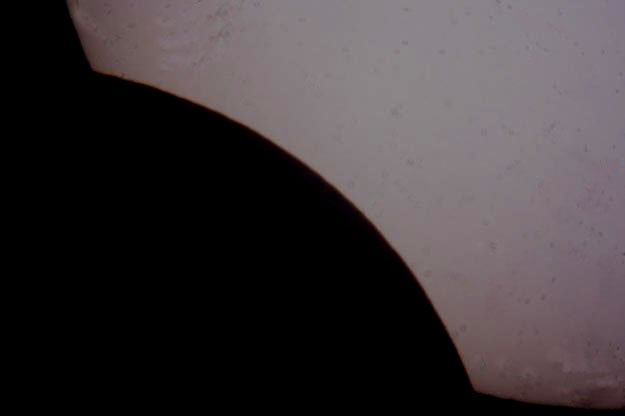 |
Hernando Bautista |
It's a great feeling witnessing an astro event such
as yesterday's solar eclipse especially for relative
new comers to the hobby like me. This is just he
2nd solar eclipse that I've witnessed and it's
awesome!
Image taken using Celestron C8
and Canon XSi DSLR. |
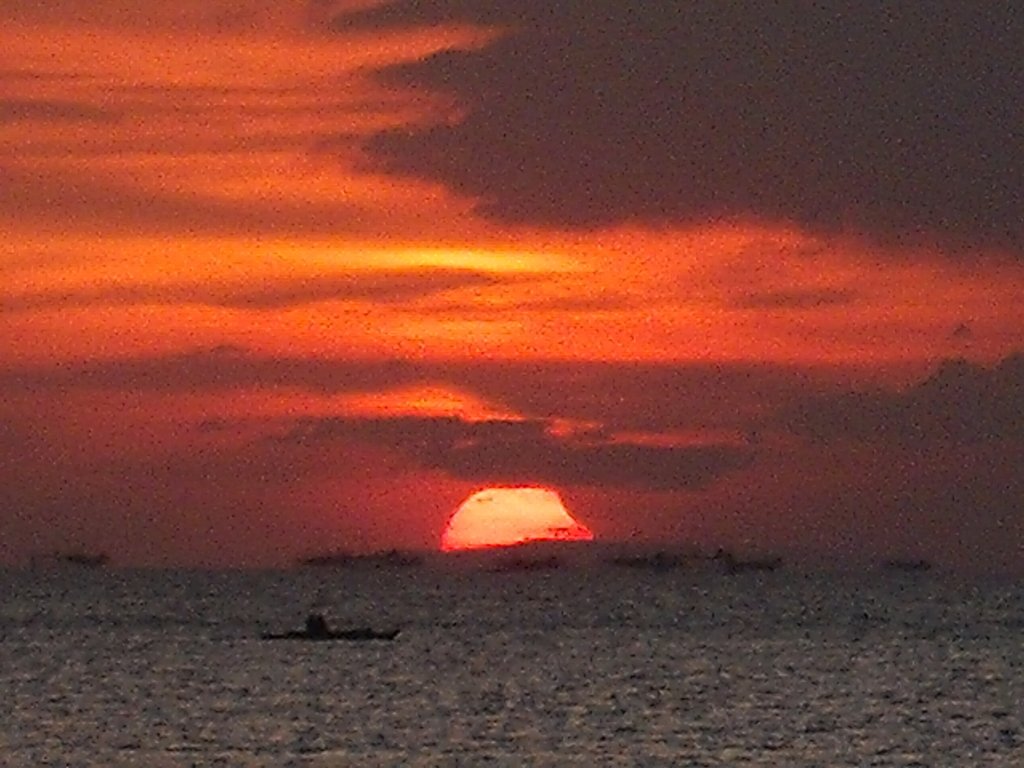 |
Dante Cruz |
Image taken at 5:44:44 pm (9:44:44 UT) using
only my Fujifilm A850 digital camera at maximum
zoom, without tripod, without telescope, without
filter: |
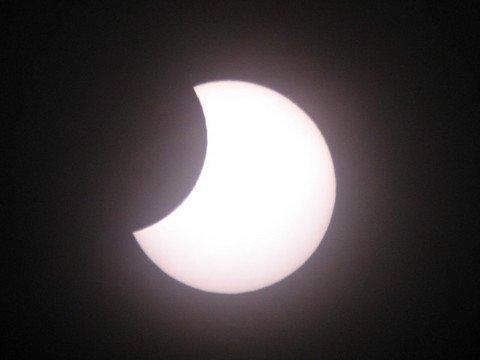 |
Vincent Lao
Image
1 ,
2 ,
3 ,
4 |
All images were taken with a
Canon Powershot A540 and a 50mm f/6 refractor
outside the American Cemetery, a few blocks from my
workplace. Baader Solar Filter and 1/125 sec
exposure at ISO 100.
|
Full eclipse report at
AstroCamp Observatory, click
here.
|
|
|